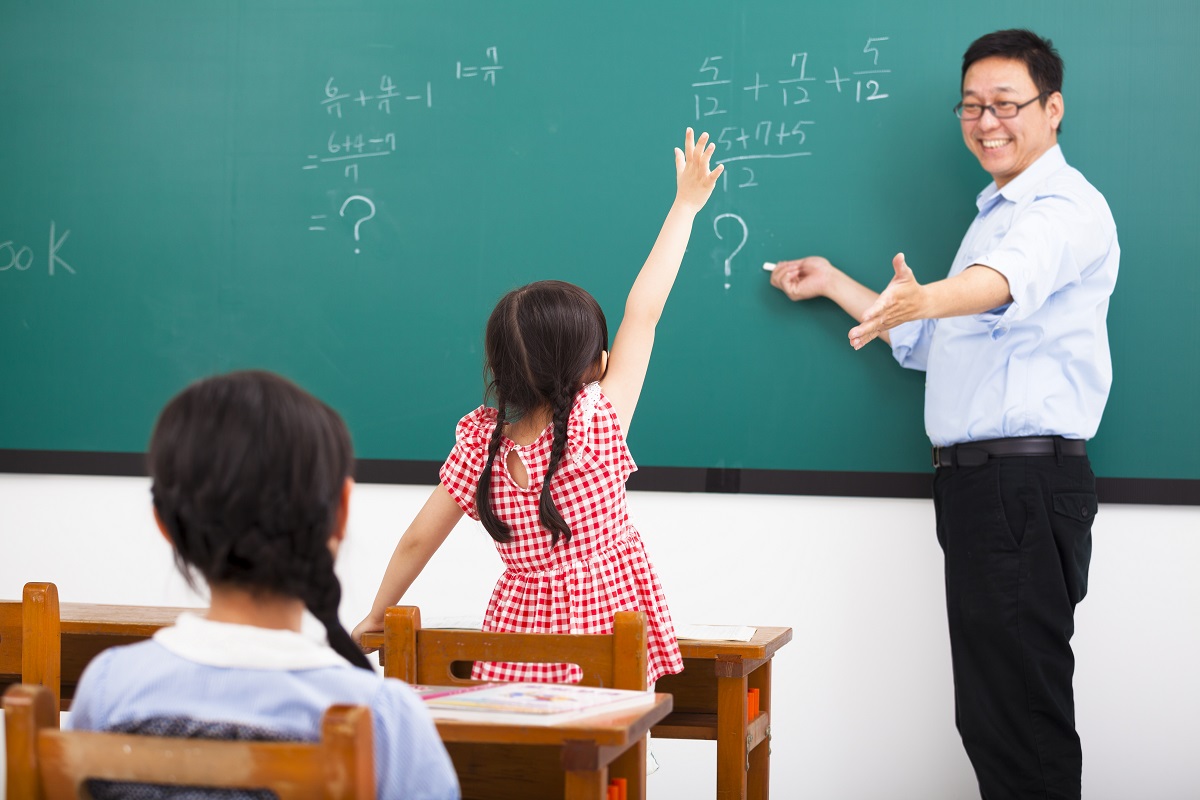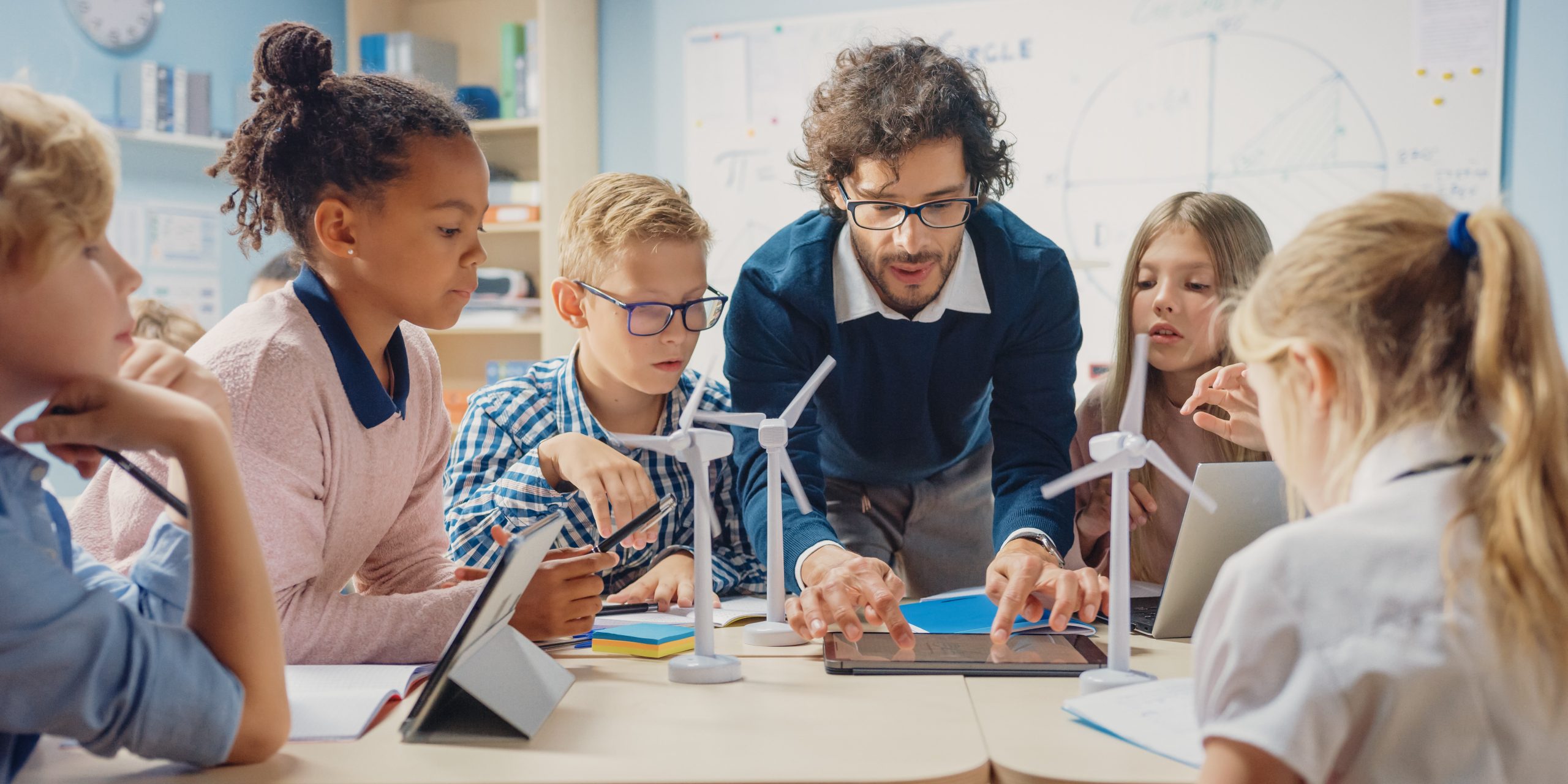Accelerate Learning with Primary Science Tuition Singapore for Young Minds
Accelerate Learning with Primary Science Tuition Singapore for Young Minds
Blog Article
Exploring the Various Teaching Methods in Main Scientific Research Education Today
The landscape of primary science education is advancing, with different mentor approaches obtaining importance in contemporary classrooms. Inquiry-based learning, hands-on experiments, and the assimilation of technology are redefining how teachers engage young minds. Furthermore, collaborative methods and separated instruction are being utilized to cater to the varied demands of pupils, boosting both interaction and understanding. As we analyze these techniques, inquiries occur regarding their efficiency and the implications for future educational practices. What might these changes in strategy mean for the following generation of students?
Inquiry-Based Discovering
Inquiry-Based Understanding (IBL) is a pedagogical strategy that encourages pupils to check out scientific principles through wondering about, investigation, and hands-on experimentation. This technique emphasizes the role of students as active participants in their learning, advertising important thinking and problem-solving skills. By involving with real-world questions, pupils end up being interested and motivated, which improves their understanding of clinical principles.
In IBL, educators work as facilitators, leading students as they navigate their questions instead of supplying info straight. This student-centered method enables distinction, accommodating numerous finding out paces and styles. Trainees establish abilities in formulating hypotheses, developing experiments, and evaluating data, which are important for scientific literacy.
Additionally, IBL cultivates partnership amongst trainees, encouraging them to share concepts and findings. This collective inquiry promotes social skills and a sense of community within the class. The process of inquiry urges resilience, as trainees find out to accept failing as a tipping rock toward understanding.
Hands-On Experiments
Hands-on experiments are a crucial component of efficient science education and learning, enhancing the principles of inquiry-based understanding. These experiments allow trainees to engage straight with scientific concepts, cultivating a deeper understanding with experiential discovering. By manipulating materials and observing outcomes, young students can grasp abstract theories in tangible means.
Such activities advertise vital thinking and problem-solving abilities, as trainees assume results, conduct experiments, and assess outcomes. This process motivates them to ask concerns, fine-tune their understanding, and establish a scientific attitude. In addition, hands-on experiments can be customized to varied discovering designs, making certain that all trainees have the possibility to involve meaningfully with the content.
In addition, hands-on experiments often urge partnership amongst peers, promoting synergy and communication abilities. Functioning in teams makes it possible for trainees to share ideas, go over findings, and find out from one an additional, which improves their overall instructional experience.
Integrating hands-on experiments into the primary science curriculum not only enhances the finding out environment but likewise cultivates a lifelong passion in scientific research. By proactively joining their education and learning, trainees are much more most likely to develop an interest for scientific query that prolongs beyond the class.

Technology Combination
Incorporating modern technology right into main scientific research education and learning has come to be progressively necessary in promoting pupil interaction and boosting finding out end results. Using electronic devices, such as interactive simulations, digital laboratories, and educational software application, offers trainees with possibilities to discover scientific ideas in ingenious methods. These sources promote a much deeper understanding of complicated topics by allowing students to picture and manipulate variables that would certainly be unwise in a conventional classroom setup.
Furthermore, innovation assimilation motivates individualized finding out experiences. Students can proceed at their very own speed, revisiting difficult ideas via multimedia sources, which cater to various discovering designs. This versatility not just sustains specific development but also grows a sense of autonomy in learners.
Furthermore, innovation acts as a bridge to real-world scientific research, attaching students with current research study and professional payments. Accessibility to on the internet databases and clinical journals broadens trainees' viewpoints on scientific questions and promotes crucial assuming abilities.
Collaborative Understanding
Collective discovering plays an essential role in main science education and learning by fostering team effort and interaction abilities amongst pupils. This method encourages students to function together, share understanding, and take part in analytic, which boosts their understanding of scientific principles. By taking part in team tasks, trainees discover to verbalize their ideas, listen to diverse viewpoints, and negotiate solutions, every one of which are essential abilities in web both academic and real-world contexts.

Research indicates that collaborative learning can cause enhanced inspiration and engagement in science subjects, as pupils locate enjoyment in shared experiences (primary science tuition Singapore). Furthermore, this approach prepares pupils for future joint undertakings, furnishing them with the abilities necessary for efficient synergy in greater education and learning and specialist environments. Eventually, welcoming collective learning in key scientific research education can substantially improve the discovering experience and promote a deeper understanding of scientific query
Distinguished Direction

Distinguished direction can materialize in various ways, such as varying the content, processes, or items of discovering. Educators might use tiered tasks that offer varying degrees of intricacy, allowing pupils to function at their particular readiness levels. In addition, adaptable organizing techniques can facilitate cooperation amongst students with different abilities, fostering peer understanding.
Assessment plays a vital function in this technique, as it educates instruction and helps instructors recognize each pupil's one-of-a-kind requirements. Formative evaluations, such as tests and observations, can lead instructors in readjusting their approaches to improve finding out end results. primary science tuition Singapore. Eventually, by applying set apart guideline in key science education, teachers can cultivate a more efficient and fair knowing atmosphere, empowering all students to reach their complete potential in recognizing scientific phenomena
Verdict
In recap, the diverse mentor techniques in main science education and learning, consisting of inquiry-based learning, hands-on experiments, modern technology combination, collective knowing, and distinguished guideline, jointly add to a more efficient learning environment. These methods advertise crucial reasoning, analytic skills, and a deeper understanding of scientific principles. By applying these methods, instructors can click over here now develop appealing and helpful class that deal with the diverse requirements of trainees, ultimately fostering a lifelong rate of interest in science and improving academic achievement.
Inquiry-Based Learning (IBL) is an instructional technique that encourages students to explore scientific principles through questioning, investigation, and hands-on trial and error.Collective discovering plays a crucial function in primary scientific research education and learning by fostering team effort and interaction skills among trainees.Research study indicates that collaborative learning can lead to boosted inspiration and interaction in scientific research topics, as pupils locate enjoyment in shared experiences.In fostering a comprehensive learning atmosphere, set apart direction arises as an essential strategy to fit the diverse requirements and abilities of pupils in key scientific research education and learning. Ultimately, by applying distinguished instruction in key scientific research education and learning, teachers can cultivate an extra effective and equitable learning setting, empowering all pupils to reach their complete possibility in understanding clinical sensations.
Report this page